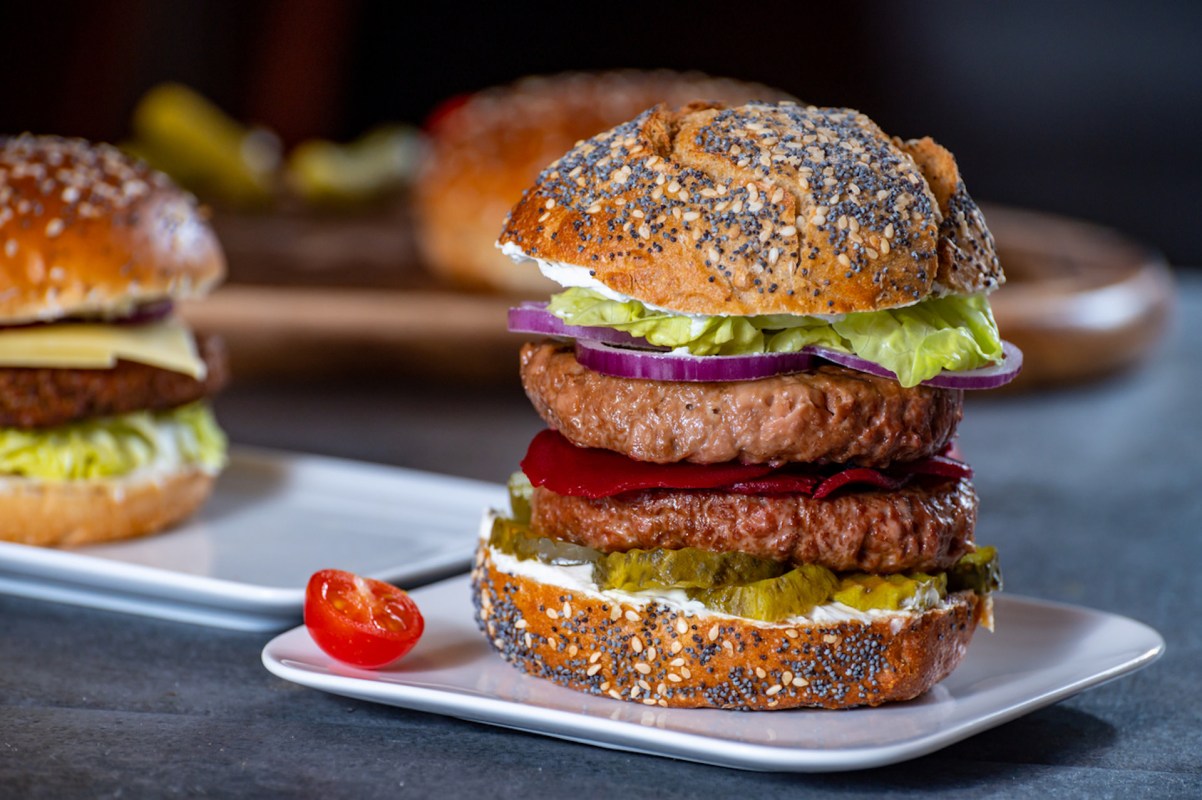A number of states are looking to regulate or ban lab-grown cell-cultured meat, citing a war on ranching and concerns over "Frankenmeat" and threatening people with hefty fines.
What's happening?
According to Inside Climate News, state senators in Alabama passed a bill that would make it a misdemeanor to sell, manufacture, or distribute lab-grown cell-cultured meat, a product made by taking a sample of an animal's muscle cells and growing them in lab conditions. The crime would carry a $500 fine and up to three months in jail. The bill is now ready for a vote in the Alabama House of Representatives.
In Arizona, two bills take aim at cell-cultured meat, the publication reports. HB 2244, which has more bipartisan support, aims to prohibit substitute meat products like lab-grown and plant- based varieties from being labeled just as meat. HB 2121 would prohibit Arizonans from selling or producing cell-cultured meat in the state. It would also allow people and businesses harmed by its sale to sue for up to $100,000. The bill passed through the Arizona House of Representatives and is now awaiting Senate vote.
Lawmakers have cited a conflict with agricultural interests as well as health concerns over "Frankenmeat."
Already, 16 states, including Arkansas, Georgia, Kansas, South Carolina, Oklahoma, Texas, and Wyoming, have passed laws that address the usage of the word "meat" for such products, including insect- and plant-based meats.
Why are these bans concerning?
One major concern from producers and lawmakers opposing these laws is that they will limit consumers' ability to make their own choices regarding the products they consume.
"People should have the right, if they choose to, to buy that here in Arizona," said Rep. Keith Seaman, a Democrat, per Inside Climate News.
When it comes to seafood, the ban would hurt American competition in the industry. According to Justin Kolbeck, CEO of cultivated seafood company Wild Type, a large majority of U.S.-consumed seafood is imported.
Many also see lab-grown meat as a way to help us slow the warming of our planet — agriculture accounts for about 11% of the U.S.'s greenhouse gas pollution, according to Inside Climate News. Livestock make up about a quarter of that pollution, releasing methane, a gas that's 80 times more potent than carbon dioxide in the first 20 years after it reaches the atmosphere.
Reducing this pollution would help us protect our communities. The majority of scientists agree that the warming of our planet is supercharging our weather, making extreme events like hurricanes and flooding more frequent and severe.
What's being done about agriculture's impact on our climate?
Lab-grown meat companies are already making strides. For example, Steakholder Foods has developed a manufacturing process to produce "bio-printed" meat on an industrial scale.
Plus, the U.S. Food and Drug Administration (FDA) recently approved GOOD Meat, a lab-grown poultry company, to operate a facility in California. The company already sells its product in Singapore and will require final approval from the FDA before selling in the U.S.
Meanwhile, climate activists have called for more regulation of pollution within the agricultural sector. In 2023, more than 150 countries pledged to cut emissions from food and agriculture.
You can help make a positive impact by cutting your meat consumption — just skipping one meat-based meal per week can help. Replacing a quarter of your meat days with veggie-based alternatives could save you a few hundred dollars a year, and adopting a "plant slant" diet could add years to your life.
Join our free newsletter for cool news and actionable info that makes it easy to help yourself while helping the planet.









